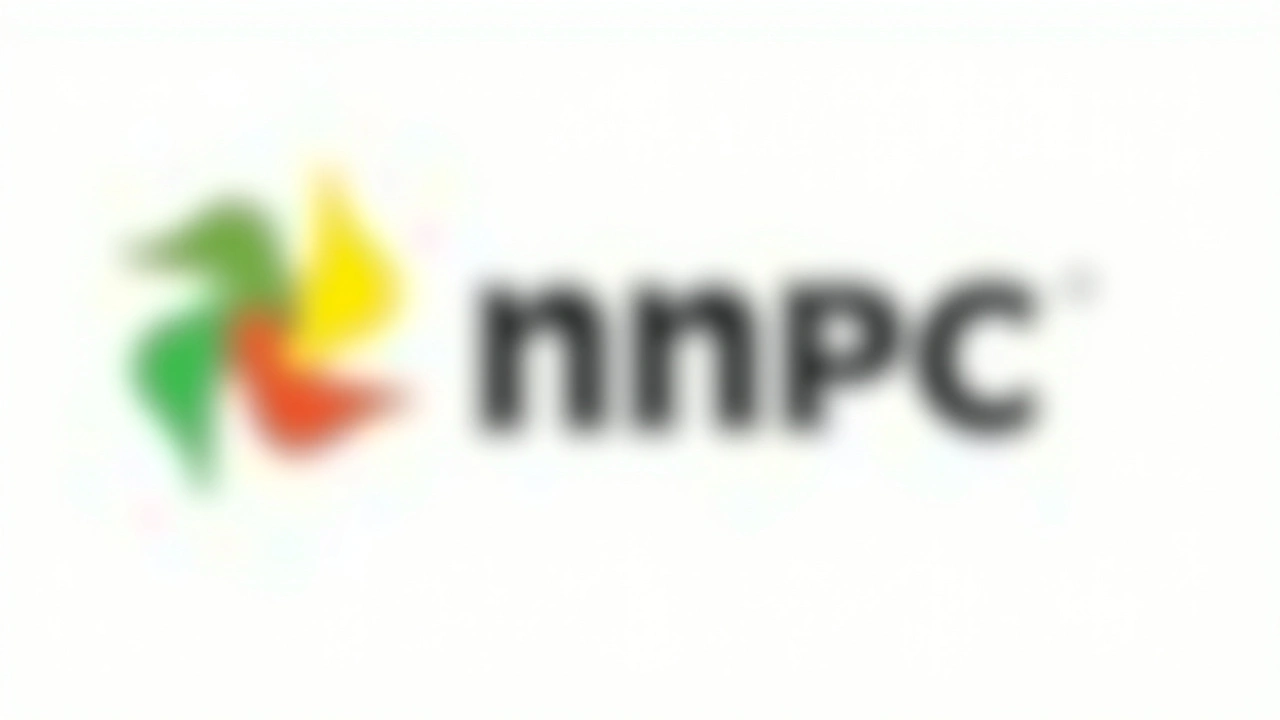Oil Marketers Question NNPC's Petrol Pricing Strategy
The Independent Petroleum Marketers Association of Nigeria (IPMAN) has voiced strong concerns over the Nigerian National Petroleum Company Limited's (NNPC) recent pricing strategy for petrol produced locally at the Dangote Refinery. According to IPMAN, led by its National Welfare Officer, John Kekeocha, it is perplexing and counterintuitive for petrol sourced within the country to cost more than imported fuel. This issue has sparked intense debate and public discontent, causing many to question the benefits that local production is supposed to offer.
The Crux of the Controversy
The controversy erupted following NNPC's announcement that it started loading the first batch of petrol from the Dangote Refinery, labeling this as a significant achievement for Nigeria's petroleum industry. However, the joy was short-lived as it became evident that the petrol, despite being domestically sourced, was priced higher than its imported counterparts. John Kekeocha argued on Channels Television that the rationale behind promoting local production loses its merit if it fails to bring about cost savings. He highlighted that consumers expected lower prices with local production, which should eliminate various costs associated with international logistics, such as shipping and import duties.
Dissecting the Pricing Elements
The Nigerian National Petroleum Company Limited (NNPC) announced that it procured petrol from the Dangote Refinery at a rate of N898 per litre. However, estimated retail prices revealed by NNPC ranged from N950.22 per litre in Lagos to an astonishing N1,019 per litre in Borno. These prices were based on a comprehensive pricing template that included various additional fees such as distribution, inspection, and contributions to the Nigerian Midstream and Downstream Petroleum Regulatory Authority (NMDPRA). According to NNPC, these added costs justify the higher retail prices.
One key point in this debate is that the NNPC paid for this batch of petrol in USD for the September 2024 offtake. The company has mentioned that transactions in Naira will commence from October 1, 2024, which it believes will provide more transparency and ease of understanding for the general public. Moreover, NNPC has assured that any disputed pricing will result in discounts that will be passed on to consumers, aiming to alleviate public concern to some extent.
Refinery's Stance: Misleading and Mischievous Claims
Contrary to NNPC's claims, the Dangote Refinery has rejected the notion that it sold petrol to NNPC at N898 per litre, calling such allegations 'misleading and mischievous.' Anthony Chiejina, a spokesman for the refinery, clarified that the transactions were made in dollars and the cost savings compared to importing the petrol were significant. Chiejina urged the public and stakeholders to consider the economic benefits of having a local refinery, which should theoretically lower the dependency on imports and stabilize the supply chain despite initial pricing hiccups.
Despite the refinery's defense, the general sentiment among consumers and various stakeholders like IPMAN remains that local petrol should inherently be cheaper. John Kekeocha reiterated that avoiding international shipping logistics alone should offer substantial cost reductions that should be reflected in retail prices. He argued that it is illogical to celebrate the milestone of local production when consumers see little to no financial benefits.
Future Implications for Nigeria's Petroleum Industry
This ongoing debate brings several critical issues into the limelight, such as the transparency of pricing strategies and the broader economic benefits of local production. The conflicting narratives from NNPC and the Dangote Refinery highlight the need for a unified and transparent pricing mechanism that consumers can trust. Additionally, Kekeocha's concerns reflect a widespread sentiment among Nigerians who are eager to see the economic benefits of local manufacturing and production being realized.
It is also essential for NNPC to communicate more clearly with Nigerians about the breakdown of costs involved in the pricing of petrol. Effective communication may bridge the gap between public expectation and corporate realities. For instance, NNPC may need to provide detailed justifications for the added costs and what measures are being taken to ensure that prices will drop once Naira transactions commence.
In conclusion, the tension surrounding the pricing of locally produced petrol underscores a broader challenge Nigeria's petroleum industry faces. For local refineries like Dangote's to gain public endorsement, the economic benefits must be palpable to the average Nigerian consumer. Until then, skepticism and controversy will likely continue to cloud what should be a significant milestone in Nigeria's quest for energy independence.
The coming months will be crucial in determining how this situation unfolds and whether initiatives such as John Kekeocha's criticisms will catalyze policy changes that align local production advantages with consumer expectations. For now, all eyes remain on the NNPC and how it navigates these muddy waters.







Abhishek Deshpande September 19, 2024
Let’s break this down, shall? The Dangote Refinery isn’t selling petrol to NNPC at N898-that’s a red herring. The real cost is in USD conversion, forex volatility, and the fact that NNPC is still paying in dollars for this batch. Even if they switch to Naira in October, the exchange rate will still be artificially inflated. Add to that NMDPRA fees, distribution monopolies, and middlemen skimming 15-20% at every stage-and suddenly N1,019 in Borno doesn’t seem so absurd. It’s not corruption-it’s systemic inefficiency dressed up as policy. And no, the refinery isn’t to blame. The problem is the entire supply chain architecture.
vikram yadav September 20, 2024
I’ve been watching this from India, and honestly? This feels like a carbon copy of what happened with our Reliance refinery a decade ago. People expected cheaper fuel, but the moment you add logistics, taxes, regulatory fees, and the cost of maintaining a national monopoly (NNPC), the savings evaporate. The real win here isn’t price-it’s sovereignty. No more waiting for global oil shocks to wreck your budget. Maybe the price won’t drop tomorrow, but in five years? Nigeria won’t be at the mercy of foreign speculators anymore. Patience, people.
Tamanna Tanni September 21, 2024
I just want to say… thank you to the workers at the refinery. They’re not the ones setting prices. And to the people angry about N1,019? You’re not wrong-but you’re also not helping. Let’s channel this energy into demanding transparency, not rage. Maybe NNPC should publish a live pricing dashboard. Like, with real-time data. 🙏
Rosy Forte September 22, 2024
Ah, the tragicomic ballet of Nigerian economic delusion. We celebrate the Dangote Refinery as a ‘milestone’ while simultaneously refusing to acknowledge that capitalism-unlike political rhetoric-is not a benevolent deity. The notion that ‘local production must equal lower prices’ is a Marxist fairy tale peddled by those who’ve never opened a balance sheet. The refinery operates in a global market. NNPC operates as a state actor with bureaucratic inertia. The price isn’t broken-it’s the entire ideological framework that’s flawed. If you want cheap fuel, abolish subsidies. Privatize distribution. Let the market decide. But no, we’d rather cry about ‘exploitation’ while blaming the refinery for the state’s incompetence. How very… Nigerian.
Yogesh Dhakne September 23, 2024
Honestly? I’m just glad we’re making our own petrol now. Even if it’s a bit expensive, at least it’s ours. Before, we were at the mercy of global prices and shipping delays. Now? We have control. Yeah, the pricing is messy, but that’s a fixable problem. The refinery is running. That’s huge. Let’s not throw the baby out with the bathwater.
kuldeep pandey September 25, 2024
Oh wow. So now the ‘local production’ myth is being weaponized to justify price gouging? Brilliant. Let me guess-NNPC’s CEO has a vacation home in London. And the NMDPRA fees? Probably just a slush fund for ministers’ children’s private schools. N1,019 in Borno? That’s not a price. That’s a punishment. And the refinery saying ‘we didn’t sell it at N898’? Classic. They’re not lying-they’re just letting the government take the blame. Pathetic.
Hannah John September 27, 2024
Nobody wants to talk about the real elephant in the room-the CIA funded the Dangote refinery to keep Nigeria dependent on dollar-based energy so they can control the Naira. The whole ‘local production’ thing is a psyop. They want us to think we’re free while the real power brokers sit in Washington and London laughing. Why do you think the switch to Naira transactions is ‘coming in October’? Coincidence? I think not. The dollar is rigged. And so is this refinery. #DeepStateFuel
dhananjay pagere September 28, 2024
📊 Data point: NNPC’s USD offtake cost = ~$0.58/litre. At 1500 NGN/USD, that’s N870. Add 15% logistics, 12% tax, 8% NMDPRA, 10% distribution markup = N1,150. So N950–N1,019? That’s actually conservative. The real scandal? The lack of public audit trail. Not the price. The opacity. 💸